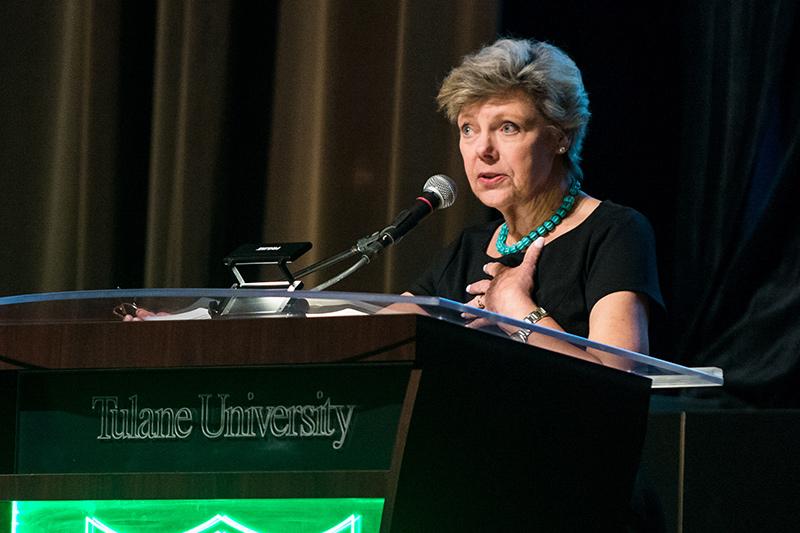A Swiss smuggler and the house on Bourbon Street
Native New Orleanian and veteran journalist Cokie Roberts described to an audience Thursday the unique experience of taking her children to visit their grandmother’s house on Bourbon Street and the memories she has growing up in the Garden District with her extended family.
Roberts, a political commentator for ABC and NPR, recounted these stories as a part of a keynote address held in McAlister Auditorium on the uptown campus, kicking off the New Orleans Tricentennial Symposium.
“You say you’re from New Orleans, and everyone knows where you’re from,” said Roberts. “You can’t name another American city that boasts its own food, its own music, its own festivals, its own parades and parades and parades.”
“You can’t name another American city that boasts its own food, its own music, its own festivals, its own parades and parades and parades.”
— Cokie Roberts
Roberts recalled her experience growing up in New Orleans and learning about her family history, harkening as far back as the Louisiana Purchase of 1803, which proves her roots run deep in the city.
“We always make a big deal of the Louisiana Purchase in my family, because my mother’s maiden name was Claiborne,” said Roberts. “We knew from babyhood the story of W.C.C. Claiborne rushing down the Mississippi to preside over the raising of the American flag here in New Orleans.”
It wasn’t until adulthood that she researched and learned of her other ties to the city: an ancestor who was a Swiss smuggler exiled to Louisiana in 1719, a French ancestor who traveled down to New Orleans and eventually married a Native American woman.
“In my opinion, the Louisiana Purchase was the beginning of multiculturalism in the United States,” said Roberts. “This city had already become such a rich gumbo of identities — Native Americans, African-Americans, French, Haitians, Germans, Jews — so it was already unlike any other place in the country.”

